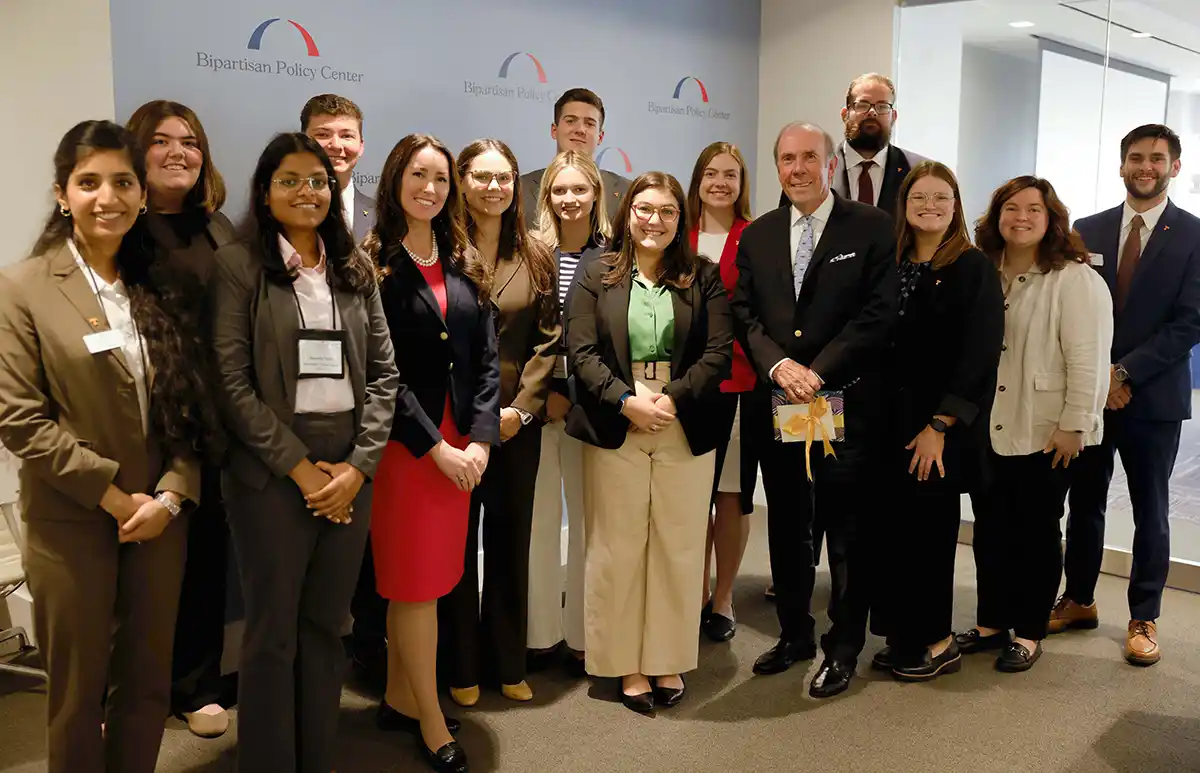Master of Public Policy


Master of Public Policy
The Master of Public Policy (MPP) is a degree program designed to prepare students for policy-related careers in government, think tanks, interest groups, not-for-profit organizations, and the private sector.
What an MPP Can Offer
This program aspires to produce graduates who are literate in the field of public policy and possess the skills to be effective policy analysts and creative problem solvers.

Getting the MPP
The degree consists of a total of 36 graduate credit hours and includes an internship and a required master class. No thesis is required for completion of the degree.
Admissions Standards and Procedures
- Applicants for admission to the program must have a bachelor’s degree or its equivalent.
- An overall GPA of 3.00 for undergraduate courses is desirable.
- Students must submit a personal statement and a resume/CV.
- 3 Letters of Recommendations.
- Submit the online application to the Office of Graduate Admissions.
The program seeks to admit a diverse group of students with strong ability and career potential who are committed to public service. Applicants who do not have a degree from an accredited U.S. institution must supply a GRE score. A composite score of 302 on the verbal and quantitative parts of the GRE is desired but not required.
Required Courses (21 credit hours) Applicants for admission to the program must complete the required prerequisites and pre-major core courses with a 2.5 GPA or higher.
HBS 501 Perspectives on the Policy Process
3 Credit Hours Commonly applied theoretical approaches to the study of the policy process, with a focus on how different theoretical perspectives generate variable understandings of policy problems and solutions.
IAC 501 Ethical Leadership in Public Affairs
3 Credit Hours Approaches to common ethical challenges in public affairs and the mechanisms required to ensure accountability, transparency, and responsibility.
HBS 512 Research Design and Data Acquisition
3 Credit Hours Methods for planning and executing research from experiments to case studies. Development of research questions and hypothesis, measurement issues, and validity of inferences. Basic assumptions and techniques of research in public policy including measurement, analysis, acquiring, and reporting data.
HBS 513 Data Driven Decisions
3 Credit Hours Methods and analytic tools used to translate data into models and forecasts to support public decision making. Emphasis on econometric and simulation approaches including linear regression and maximum likelihood methods.
HBS 514 Policy Communication and Data Visualization
3 Credit Hours Approaches to communicating complex scientific and policy information to varied audiences, media training, as well as data visualization strategies and techniques.
HBS 521 Policies and Markets
3 Credit Hours Strategies and techniques for identification and analysis of public problems, policy solutions, and determining the effectiveness of existing policies. Emphasis on micro and macroeconomic approaches, including supply and demand responses to policies.
HBS 522 Economics of the Public Sector
3 Credit Hours Resource allocation and market performance; market failure including externalities and public goods; equity, efficiency and welfare economics; income redistribution; regulation; public expenditures; political economy; taxation and tax policy; intergovernmental finance.
Additional Course Requirements
A 9-credit (3 courses) concentration is required to complete the MPP degree.
*Indicates that other courses not listed below for the specialization may be accepted upon approval by the Director of Graduate Studies.
Internship
A 3-credit hour internship (HBS 591) is required for all students who lack significant applied policy experience. Students with a year or more of continuous professional experience who are currently employed in policy-related positions may have the requirement waived. Students withing to waive the internship requirement should send a request to the Director of Graduate Studies. Students who waive the internship will take an additional elective to obtain the 35 required credits.
HBS 591 Internship
0-9 Credit Hours | Approved internships and other professional opportunities. Open to students participating in approved internship programs. Grading Restriction: Satisfactory/No Credit grading only.
Master Class
A 3-credit hour course (HBS 584) Master Class in Public Policy is required for all students who lack significant applied policy experience. All non-executive MPP candidates are required to take this course, preferably during the last semester in the program. The Master Class serves in lieu of a comprehensive exam for the MPP degree.
HBS 584 Master Class in Public Policy
3 Credit Hours An immersive and experiential capstone learning experience that provides an opportunity to learn from and be mentored by experts in public policy. Prerequisite: students must have completed at least 25 graduate hours at the Baker School. Registration Permission: consent from Director of Graduate Studies.
Graduation Requirements
To qualify for graduation, students must have at least a 3.00 grade point average in all courses attempted for graduate credit. Students who do not maintain a 3.00 grade point average are subject to denial of enrollment privileges. Student files are evaluated each semester to determine eligibility for continued enrollment.